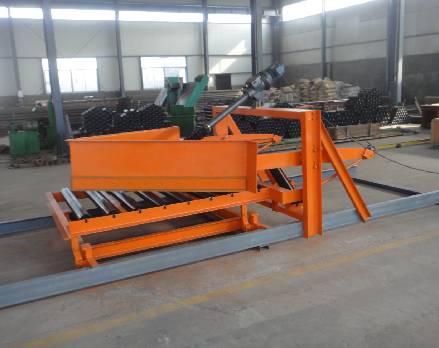 Afrikaans
Afrikaans  Albanian
Albanian  Amharic
Amharic  Arabic
Arabic  Armenian
Armenian  Azerbaijani
Azerbaijani  Basque
Basque  Belarusian
Belarusian  Bengali
Bengali  Bosnian
Bosnian  Bulgarian
Bulgarian  Catalan
Catalan  Cebuano
Cebuano  Corsican
Corsican  Croatian
Croatian  Czech
Czech  Danish
Danish  Dutch
Dutch  English
English  Esperanto
Esperanto  Estonian
Estonian  Finnish
Finnish  French
French  Frisian
Frisian  Galician
Galician  Georgian
Georgian  German
German  Greek
Greek  Gujarati
Gujarati  Haitian Creole
Haitian Creole  hausa
hausa  hawaiian
hawaiian  Hebrew
Hebrew  Hindi
Hindi  Miao
Miao  Hungarian
Hungarian  Icelandic
Icelandic  igbo
igbo  Indonesian
Indonesian  irish
irish  Italian
Italian  Japanese
Japanese  Javanese
Javanese  Kannada
Kannada  kazakh
kazakh  Khmer
Khmer  Rwandese
Rwandese  Korean
Korean  Kurdish
Kurdish  Kyrgyz
Kyrgyz  Lao
Lao  Latin
Latin  Latvian
Latvian  Lithuanian
Lithuanian  Luxembourgish
Luxembourgish  Macedonian
Macedonian  Malgashi
Malgashi  Malay
Malay  Malayalam
Malayalam  Maltese
Maltese  Maori
Maori  Marathi
Marathi  Mongolian
Mongolian  Myanmar
Myanmar  Nepali
Nepali  Norwegian
Norwegian  Norwegian
Norwegian  Occitan
Occitan  Pashto
Pashto  Persian
Persian  Polish
Polish  Portuguese
Portuguese  Punjabi
Punjabi  Romanian
Romanian  Russian
Russian  Samoan
Samoan  Scottish Gaelic
Scottish Gaelic  Serbian
Serbian  Sesotho
Sesotho  Shona
Shona  Sindhi
Sindhi  Sinhala
Sinhala  Slovak
Slovak  Slovenian
Slovenian  Somali
Somali  Spanish
Spanish  Sundanese
Sundanese  Swahili
Swahili  Swedish
Swedish  Tagalog
Tagalog  Tajik
Tajik  Tamil
Tamil  Tatar
Tatar  Telugu
Telugu  Thai
Thai  Turkish
Turkish  Turkmen
Turkmen  Ukrainian
Ukrainian  Urdu
Urdu  Uighur
Uighur  Uzbek
Uzbek  Vietnamese
Vietnamese  Welsh
Welsh  Bantu
Bantu  Yiddish
Yiddish  Yoruba
Yoruba  Zulu
Zulu conveyor hanger
Understanding the Importance and Functionality of Conveyor Hangers
In modern manufacturing and logistics, conveyor systems play a pivotal role in enhancing productivity and efficiency. Among the crucial components of a conveyor system are conveyor hangers, which are often overlooked but serve essential functions. This article explores the significance of conveyor hangers, their types, and their applications in various industries.
At its core, a conveyor hanger is a device used to suspend and support the moving parts of a conveyor system. These hangers help maintain the alignment and tension of the conveyor belt, which is vital for smooth operation. Properly functioning conveyor hangers reduce wear and tear on the conveyor system, minimize downtime, and boost the overall lifespan of the equipment. Their design and materials can vary widely, tailored to suit specific operational requirements.
There are several types of conveyor hangers, each engineered for specific applications. The most common types include fixed hangers, adjustable hangers, and specialty hangers. Fixed hangers provide a stable, unchanging support structure, making them ideal for applications where the height of the conveyor system does not need to be adjusted. On the other hand, adjustable hangers allow for flexibility in installation, enabling operators to change the height and angle of the conveyor system as needed. This feature is particularly useful in production environments where the conveyor setup needs to evolve or adapt to changing product lines or workflows.
Specialty hangers cater to unique industry demands. For example, heavy-duty hangers are designed for high-load applications, often seen in manufacturing and construction settings where heavy materials are transported. Meanwhile, lightweight hangers are suited for smaller items and are commonly used in packaging and food processing industries. The selection of the appropriate hanger type significantly impacts the effectiveness of the conveyor system.
conveyor hanger

One notable benefit of using quality conveyor hangers is the improvement of safety in the workplace. Properly suspended conveyor systems reduce the risk of accidents caused by sagging or misaligned belts. When conveyor hangers are correctly installed, they ensure that the belts run smoothly and reduce the chances of unexpected breakdowns, which can lead to costly delays and potential hazards in manufacturing processes.
Additionally, conveyor hangers contribute to the overall efficiency of the production line. By keeping the conveyor system streamlined and reliable, workers can focus on their tasks without worrying about potential hang-ups caused by equipment failure. This stability promotes a more efficient workflow and can significantly enhance productivity.
Moreover, as sustainability becomes increasingly important in industrial practices, choosing conveyor hangers made from durable and recyclable materials can contribute to environmentally friendly operations. Investing in high-quality hangers not only supports operational needs but also aligns with a company's sustainability goals.
In conclusion, conveyor hangers are vital components of any conveyor system, providing essential support and promoting safety and efficiency. With various types available to suit specific needs, understanding their function can help businesses optimize their operations. As manufacturing continues to evolve, so too will the innovations in conveyor systems, making the role of conveyor hangers more critical than ever before. By prioritizing the selection and maintenance of these components, companies can ensure the reliability and effectiveness of their production processes.
-
Revolutionizing Conveyor Reliability with Advanced Rubber Lagging PulleysNewsJul.22,2025
-
Powering Precision and Durability with Expert Manufacturers of Conveyor ComponentsNewsJul.22,2025
-
Optimizing Conveyor Systems with Advanced Conveyor AccessoriesNewsJul.22,2025
-
Maximize Conveyor Efficiency with Quality Conveyor Idler PulleysNewsJul.22,2025
-
Future-Proof Your Conveyor System with High-Performance Polyurethane RollerNewsJul.22,2025
-
Driving Efficiency Forward with Quality Idlers and RollersNewsJul.22,2025





























